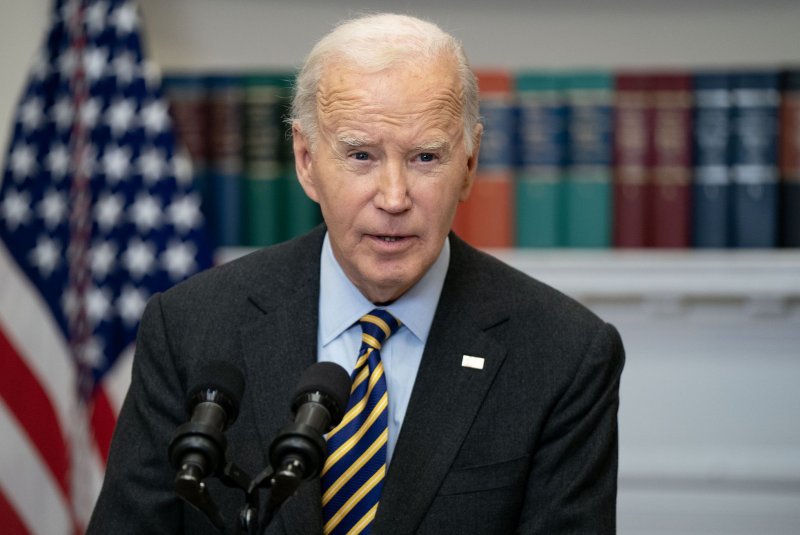President Joe Biden delivers remarks on today’s jobs report and the state of the economy on Friday. His administration announced new artificial intelligence guidelines on Monday. Photo by Leigh Vogel/UPI |
License PhotoJan. 13 (UPI) — The Biden administration announced new guidelines for artificial intelligence “diffusion” in the United States, which include streamlining licensing for chip orders, steps to slow smuggling, and raising security standards.
The White House said the interim final rule will bolster U.S. leadership in the artificial intelligence field while providing clarity with partner nations regarding stamping out loopholes in on-chip control and discouraging bad actors from technology theft.
“The United States must act decisively to lead this transition by ensuring that U.S. technology undergirds global AI use and that adversaries cannot easily abuse advanced AI,” the White House said in a statement.
“In the wrong hands, powerful AI systems have the potential to exacerbate significant national security risks, including by enabling the development of weapons of mass destruction, supporting powerful offensive cyber operations, and aiding human rights abuses, such as mass surveillance.”
The Biden administration said adversaries are already actively deploying AI, including technology developed in the United States, to undermine the country’s leadership in the field.
The new rule sets no chip sales restrictions to 18 allied countries and partners while maintaining “robust” technology protections; allowing “universal verified end-user status” to those who meet high security and trust standards and limiting those who don’t meet those standards.
The new rule would allow government-to-government arrangements to cultivate an international ecosystem of shared values regarding the development, deployment, and use of AI.
“The rule builds on previous regulations that aim to protect U.S. national security, including the October 2022 and October 2023 chip controls,” the White House said. “It follows a broad range of relevant engagements over the past 10 months with stakeholders, bipartisan members of Congress, military representatives, and foreign allies and partners.”
